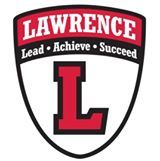Having welcomed 40 special education students for in-person learning on Oct. 12, the Lawrence Township Public Schools is preparing to bring back another group of special education students, pre-kindergarten and kindergarten students for in-person learning on Oct. 26.
There was a lot of “excitement” and “enthusiasm” as the first group of special education students were welcomed back for in-person learning at the Ben Franklin and Lawrenceville elementary schools, Superintendent of Schools Ross Kasun told the Lawrence Township Board of Education at its Oct. 14 meeting.
The next step is to bring back regular education students whose families have chosen the hybrid option, which combines in-person and remote instruction. Regular education students in grades 1-3 will be brought back Nov. 6, followed by students in grades 4-12 on Nov. 30.
The hybrid option brings small groups of students into the classroom – properly socially distanced and wearing face masks – on different days. It calls for two days of in-person learning in the classroom, and three days of remote learning at home.
Students whose families have opted for all-remote learning will continue to learn at home.
Students who are in the hybrid plan will be divided into two cohorts, or groups, Kasun said. Cohort A will attend school in-person Monday and Tuesday mornings, and Cohort B will attend school in-person on Wednesday and Thursday mornings. They will receive some asynchronous, or independent, learning in the afternoon.
On the days when they are not in the classroom, students in cohorts A and B will receive live remote instruction for part of the day, Kasun said. All students, whether they are participating in the hybrid model or all-remote learning, will have independent learning every Friday until January, Kasun said.
To ensure the health, safety and well-being of students and staff who enter the school buildings, a daily health screening tool will be used, he said. Parents who have chosen the hybrid model must complete a brief health screening before their child gets on the school bus or enters the school, he said. The survey will be emailed to parents every morning.
Since the school district began remote learning last spring when Gov. Phil Murphy shut down the schools in response to COVID-19, school district officials have learned that remote learning for students in pre-kindergarten through sixth grade is not educationally sound or effective, Kasun said.
“Having small groups of students in school is what we do best. (The hybrid model) is where most of the students and staff will thrive. We need to meet the students where they are,” Kasun said.
Looking at the big picture, there is no plan – hybrid or remote – that is going to make everyone happy, he said. There are a lot of moving parts, and all decisions moving forward are going to be challenging, he said.
Kasun said remote learning will be part of school for the foreseeable future, based on what school district officials know. COVID-19 and the spikes in positive cases of the illness are not going away any time soon.
Nevertheless, Kasun said, “it is our hope” that students who are participating in in-person learning are engaging and interacting with their teachers. School district officials want the teachers to engage with the students, “but it will not be school as we know it in the past,” he said.

